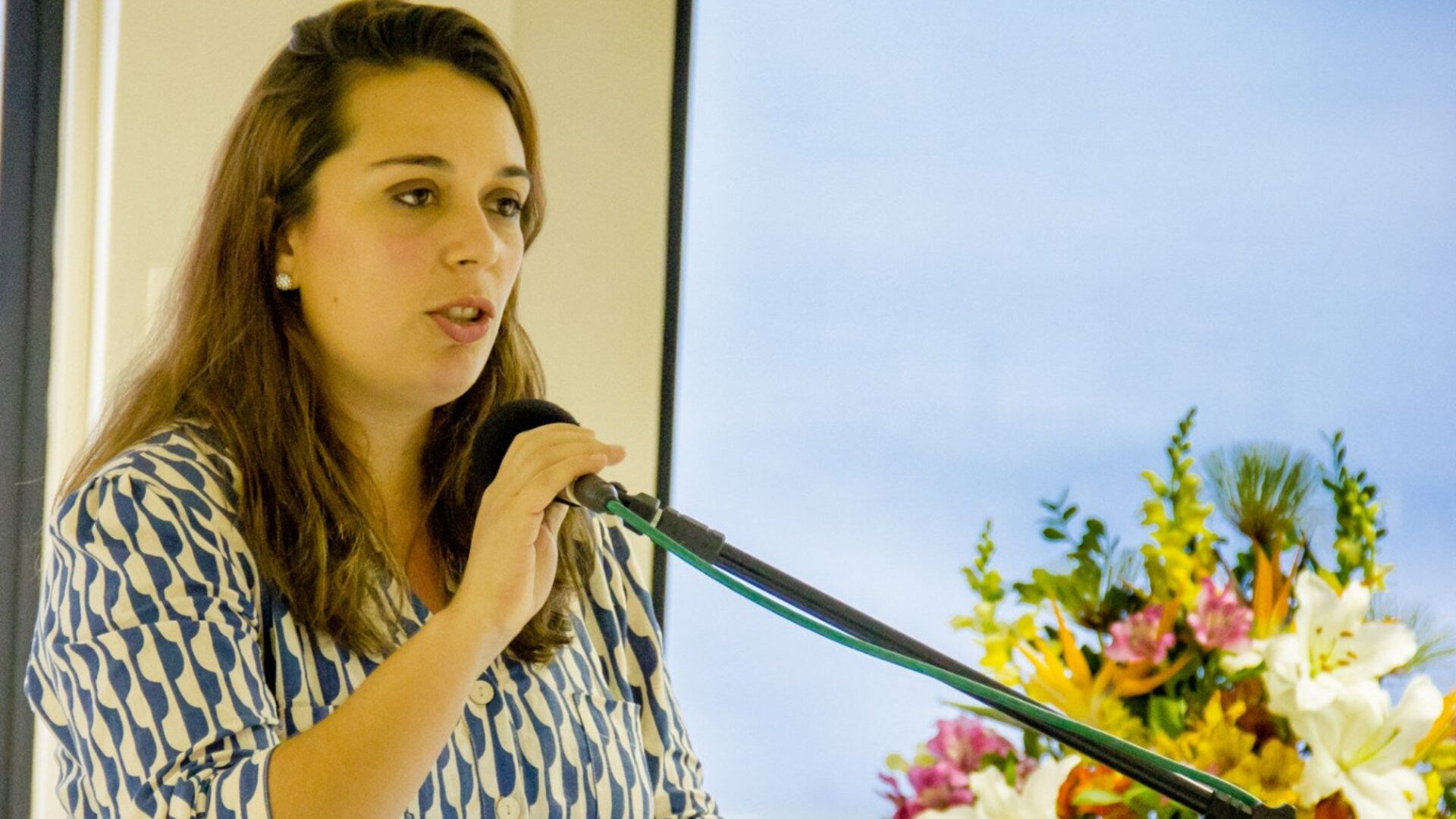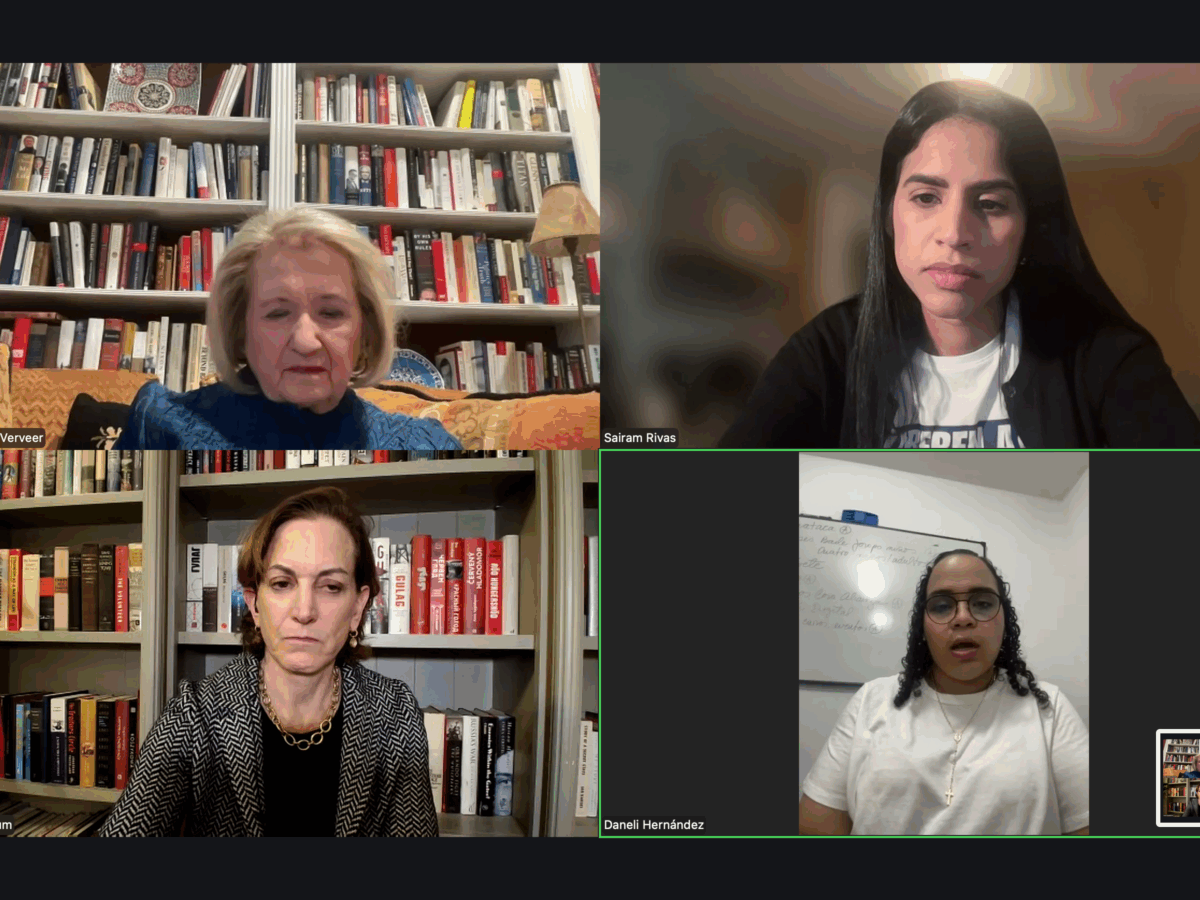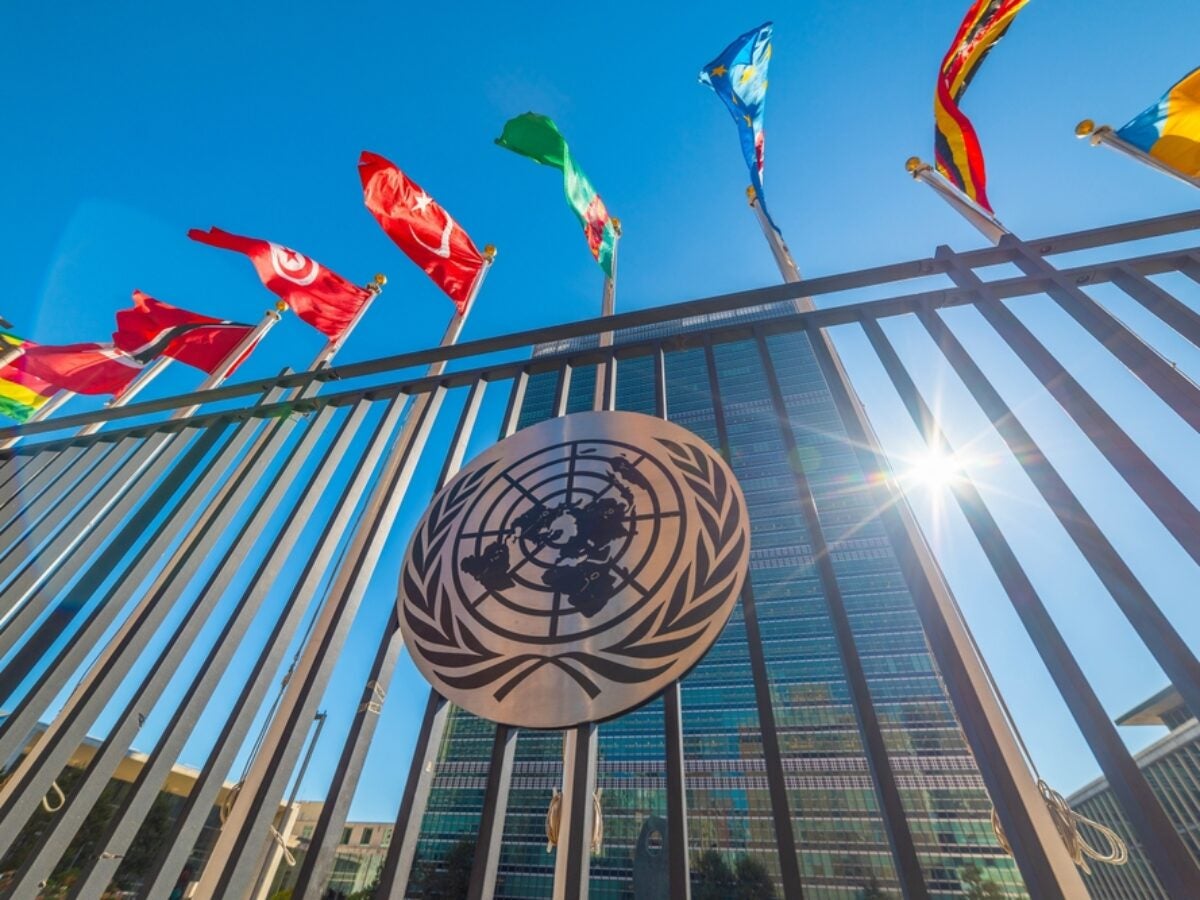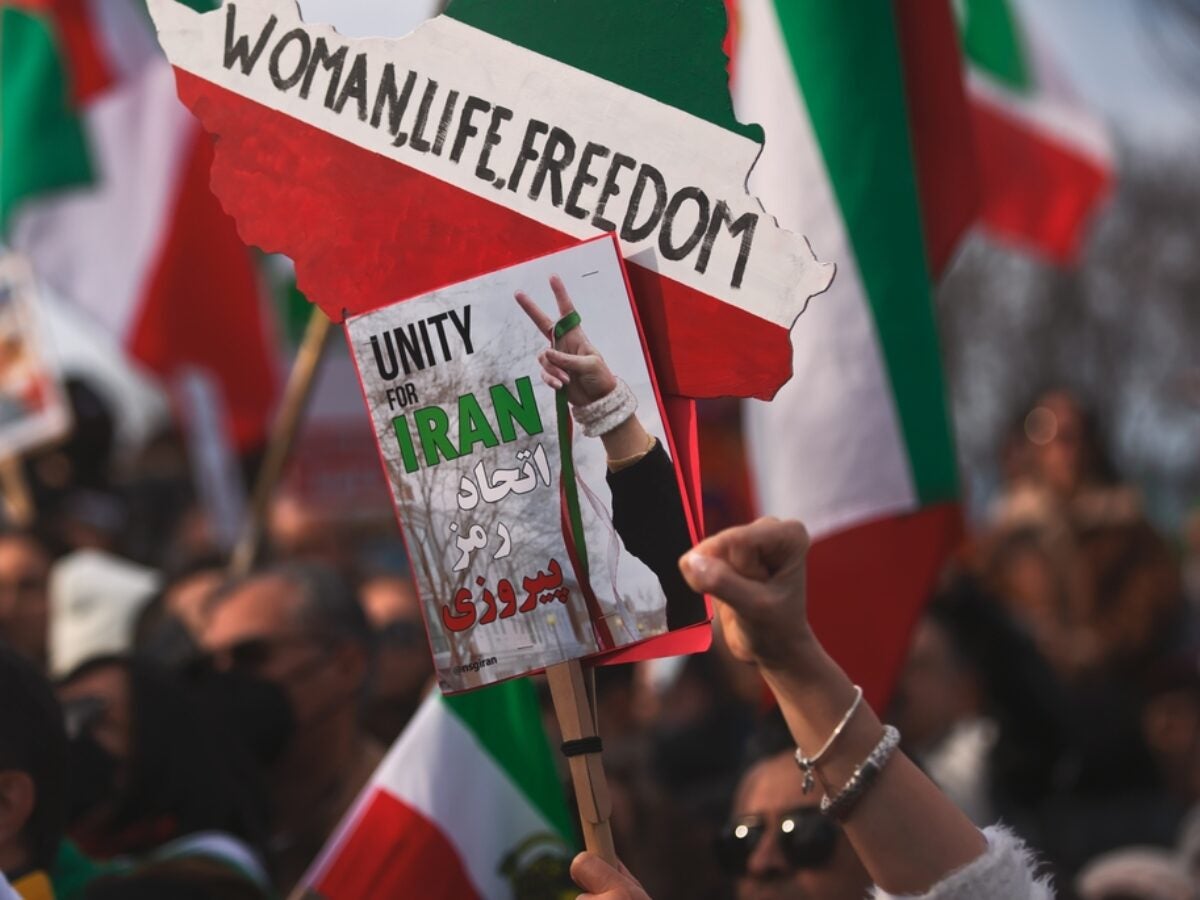An Interview with Dr. Renata Giannini

Annabelle Timsit sat down with Dr. Giannini to interview her about her research and perspective. The full transcript is below.
Annabelle Timsit: South and Latin America have had and continue to have female presidents and female activists, more high profile than in many other parts of the world, but you discuss in your research the fact that women are underrepresented in the Brazilian diplomatic corps, and even more underrepresented in management positions that have to do with peace and security. Can you tell me why you think this is and what you believe the prospects for change are in the next few years?
Renata Giannini: I would try to list the prospects for change, which I think are very positive. The fact that Brazil just announced its intention to launch a National Action Plan and, in New York, Brazil is also chair of the [Commission on the Status of Women], so diplomatically speaking Brazil is getting more and more involved in this topic and paying more attention to it. So I think that the prospective to change in the future is very positive. Just last year they established a Gender Commission within the Ministry of Foreign Affairs and also within the Ministry of Defense. We do have to wait for a few years before we see the concrete impact of these commissions. But, as to why there are so few women involved with actions having to do with international peace and security, I think it’s a change that our society, I mean it’s not only in Brazil – although I think that Brazil is lagging a little bit behind still – but it’s a change that the society needs to go through and start seeing women and men as equally able to deal with issues…with any kind of issue, including peace and security. I think that there is still – especially in the military side – a lingering mindset in which these kinds of issues are seen as a ‘male’ issue, like war is related to men and not necessarily women.
“I think it’s a change that our society has to go through…start seeing women and men as equally able to deal with issues, any kind of issue.”
AT: And the fact that the first two women recently passed the rigorous exam of the Ranger College in the United States to become cadets is obviously a good sign of this change, but even in the U.S. we’re behind on this mentality change.
RG: [In] the Brazilian law, in combatant positions we allow only [female] pilots in the Air Force. But since 2012 there is a new law that establishes that the army school will have to allow women – all of the army schools, and many of them do not allow women because some of them are focused on combatant positions. So they will have to incorporate women into, for example, AMAN, which is this particular military school where the combatants are trained. But here is the thing: they will first allow them as logistics and weapons specialists, just to try out. Hopefully this will lead to positive examples for women in the armed forces all over the world. We are faced with examples such as the American marine who said that the military is not a place for women, but hopefully these future female soldiers will be able to deconstruct the popular myths. Unfortunately, because there are so few women within the military, those one or two or three women suddenly represent all women, not just themselves. And that’s why we should take as example women like those two rangers, and there was even a third one, who was a mother and 37 years old, who went through this training. So we have to highlight these kinds of cases and sort of try to deconstruct this sort of mess around this issue.
“I think that, because there are so few women within the military, those one or two or three women, they suddenly represent all women, not just themselves.”
AT: Speaking more specifically about women in politics, do you think that the election of the first female president of Brazil in 2011, Dilma Rousseff, altered the discussion around gender in conflict, especially since she was herself a guerilla fighter?
RG: Right now, I think that it has nothing to do with it. The real reason behind the change is that the Brazilian constitution prevents any form of employment discrimination based on gender, and so the judiciary alerted the government to the fact that women being prohibited from training to become soldiers could be interpreted as anti-constitutional. So the change is mostly just filling in that legal loophole.
AT: So has President Rousseff made this one of her key issues?
RG: Not necessarily within the specific women, peace and security agenda, but issues of gender-based violence and crimes against women have definitely been prioritized on the domestic agenda. And, diplomatically speaking, Brazil has been more outspoken about this issue and has taken this issue forward within the Security Council and has opened the debate about women, peace and security, which of course has culminated in two weeks ago Patriota mentioning that Brazil is going to launch a National Action Plan.
AT: When we say ‘women, peace and security,’ that’s a very large topic; specifically for addressing sexual violence in conflict, can you tell me a little bit more about the increasing role that Brazil has taken in recent years?
RG: So there a few things that we see. First, there have been some efforts in terms of South-South cooperation. It’s not much, but it’s there. You see that there were some trainings and exchanges with health professionals in Guinea-Bissau, and there was some police training in Haiti and, in the specific case of the DRC, Brazil donated US$1 million to the High Commissioner for Human Rights to deal with impunity and access to justice for victims of sexual violence. I think these are very specific cases that are really direct, and with this particular goal of dealing with, supporting and addressing sexual violence.
On the other side, in terms of troops on the ground, they have implemented a few quick-impact programs in Haiti that have a gender component, and so they tried to benefit and focus on the local women. They also try to use local female translators, since Brazil does not have military women in combatant positions, so they don’t go on patrols or anything like that, and so they try to incorporate female translators into some of these activities, especially when they provide medical assistance to the population. You know, by having female doctors, some of them are in a better position to reach local populations. I think that these are important and solid efforts; however, it’s also important to say that the gender unit in MINUSTAH was also very active, so these efforts carried out by Brazil were not necessarily something that Brazil started. But I think it’s a combination of the two – a little bit of leadership from Brazil but also some pressure from the international community and the gender unit at MINUSTAH, so I think that the issue increasingly started to be more important to the country. There is definitely the willingness, and there have been some trainings on how to better protect local women from sexual violence. So there is the willingness and there a few solid, concrete actions.
“There have been some efforts in terms of South-South cooperation. It’s not much, but it’s there.”
AT: I was reading your report, Promoting Gender and Consolidating Peace: The Brazilian Experience, where you talk about the role that the UN agenda for peace and security has had on the issue of gender in peacebuilding. Do you think that the passing of UN Security Council Resolution (UNSCR) 1325 in 2000 has had an effect on the number of women and the treatment they receive in peacebuilding operations in Brazil?
RG: Yes, definitely. I think that Brazil started to look more towards this issue, first because international peace and security was something that was very important for the country, and the United Nations managed to associate these ideas very well, the idea that promoting peace is also promoting gender equality. For a country that has international peace and security as a priority and puts itself in a place where it’s one of the main contributors to peacebuilding operations, then one thing led to another and Brazil had to take a position in that regard.
“The United Nations managed to associate these ideas very well…that promoting peace is also promoting gender equality.”
AT: What relevance has UNSCR1325 had to the Latin America region in general?
RG: It definitely has, in some countries way more than here. You see Argentina has just launched their National Action Plan, but they’ve had it for a while, it just hadn’t passed the Congress. Chile has been more vocal about these issues, and there have been a lot of countries in Latin America that have allowed women into combatant positions. I’m talking more about the military because that’s what I focus more on. But some countries are way more advanced, and don’t even have any obstacles for women to join these positions, in some Latin American countries like Uruguay for example. So, I think it has had an effect in Latin America as well, and in some countries even more positive than it has been here in Brazil.
AT: Do you think that any of the Latin American countries are trying to become leaders in these efforts? Or is it more a question of following the UN directives and what happens in New York?
RG: I can’t speak to that in terms of a definition, because I’ve studied Latin America more in terms of adopting the UN Resolution or not, and not in terms of leadership. But I would say that the country that has been most advanced and outspoken about it is Chile. And Michelle Bachelet was the head of UN Women before she came back to the presidency, so… she was Minister of Defense, and if you were to say that there is a country leading the efforts then it would be Chile, but I can’t say that they are actually pursuing that.
AT: Speaking specifically to conflicts in Latin America, in modern times most conflicts has not been armed conflict between or within states, but armed violence in a non-conflict setting. I’m talking about armed militias, guerrilla groups, and not official structures of war between two official states. How does this conflict structure impact the security of women, and what role do women play in addressing it?
RG: Even though the nature of conflict has changed, the way that it affects women and the role that they can play haven’t really changed, especially the fact that women are disproportionately affected by different types of violence, including sexual violence. When you look into, for example, homicide rates, you see that most of the victims are males. However, that hides the fact that, even though women are not necessarily murdered, they spend lifetimes suffering through all types of violence. The kind of violence they suffer in urban settings, like Brazil for example, is not necessarily public violence, it’s private actually. And you see that there is an increase in violence like that against women. They talk a lot about demobilizing masculinities in this kind of environment where violence is widespread, which leads to ugly consequences for women in general. In terms of the kind of role that they can play, I think that it’s, as usual, undervalued – not only in conflict, but in all sorts of situations. And I think that’s something that is very important, talking specifically about conflicts which I know have been researched a lot, sometimes there are a lot of gains made in gender equality because men go to war, women stay behind and they live on their own, they start to make profits and to earn their living, but when the men come back, they lose all that. And so we really should be careful in transitional justice and conflict situations not to reverse the gains that women make and to start valuing the role that women have for peace – the same as men. I don’t understand why you have to have a special role for one or the other. I think this is a problem with the question ‘what is the role that women can have?’ Because it’s the same role that any human being can have in improving a situation that is not good.
“Even though the nature of conflict has changed, the way that it affects women and the role that they can play haven’t really changed, especially the fact that women are disproportionately affected by different types of violence, including sexual violence”
AT: The distinction we make comes from the fact that, most of the time, women are in an inferior position in terms of opportunity to participate in the process, and so we try to make a distinction in the role that they can have in processes that are mostly dominated by men.
RG: Of course! I think that you sort of gave the answer to the question, trying to improve their status so that they are heard, not focusing on their status as vulnerable or as people that have to be protected, but rather agents of peace and transformation. And empowering women really.
AT: And that’s why we’re all involved in this struggle, to empower and give a voice to those women who don’t have one.
Annabelle Timsit is the undergraduate Research Assistant at the Institute for Women, Peace and Security. She is a second year student in the School of Foreign Service at Georgetown University, and is majoring in International Politics with a concentration in Foreign Policy.
Explore More

Acclaimed Journalist Anne Applebaum and Women Human Rights Defenders Discuss Implications of…
The people of Venezuela are uncertain about their political, social, and economic…

GIWPS Analysis: The US is Pulling Back from Multilateralism
This week, the White House issued a presidential memorandum announcing that the…

GIWPS Analysis: Iran’s Escalating Political Repression and the Arrest of Narges Mohammadi
Iranian authorities detained 2023 Nobel Peace Prize awardee Narges Mohammadi during a…